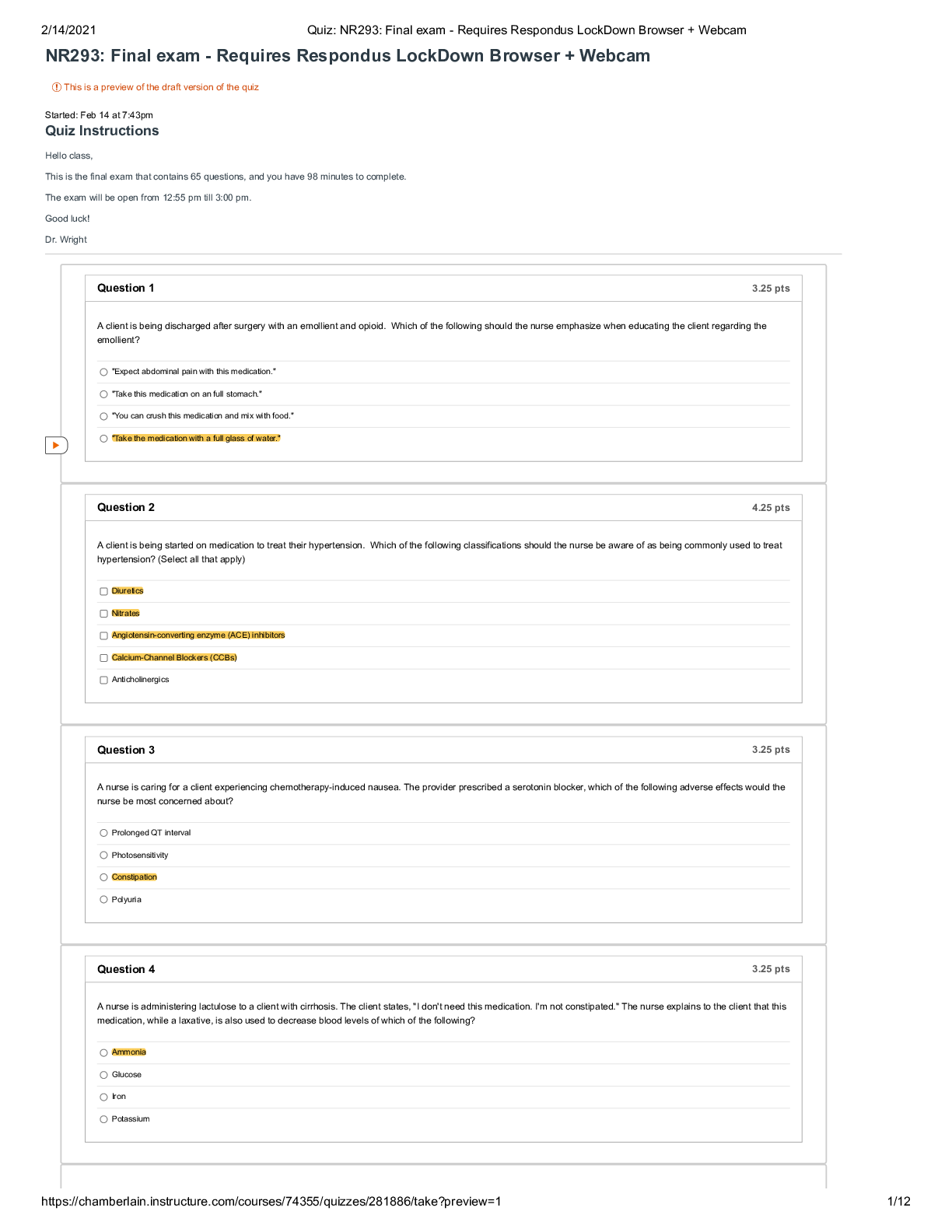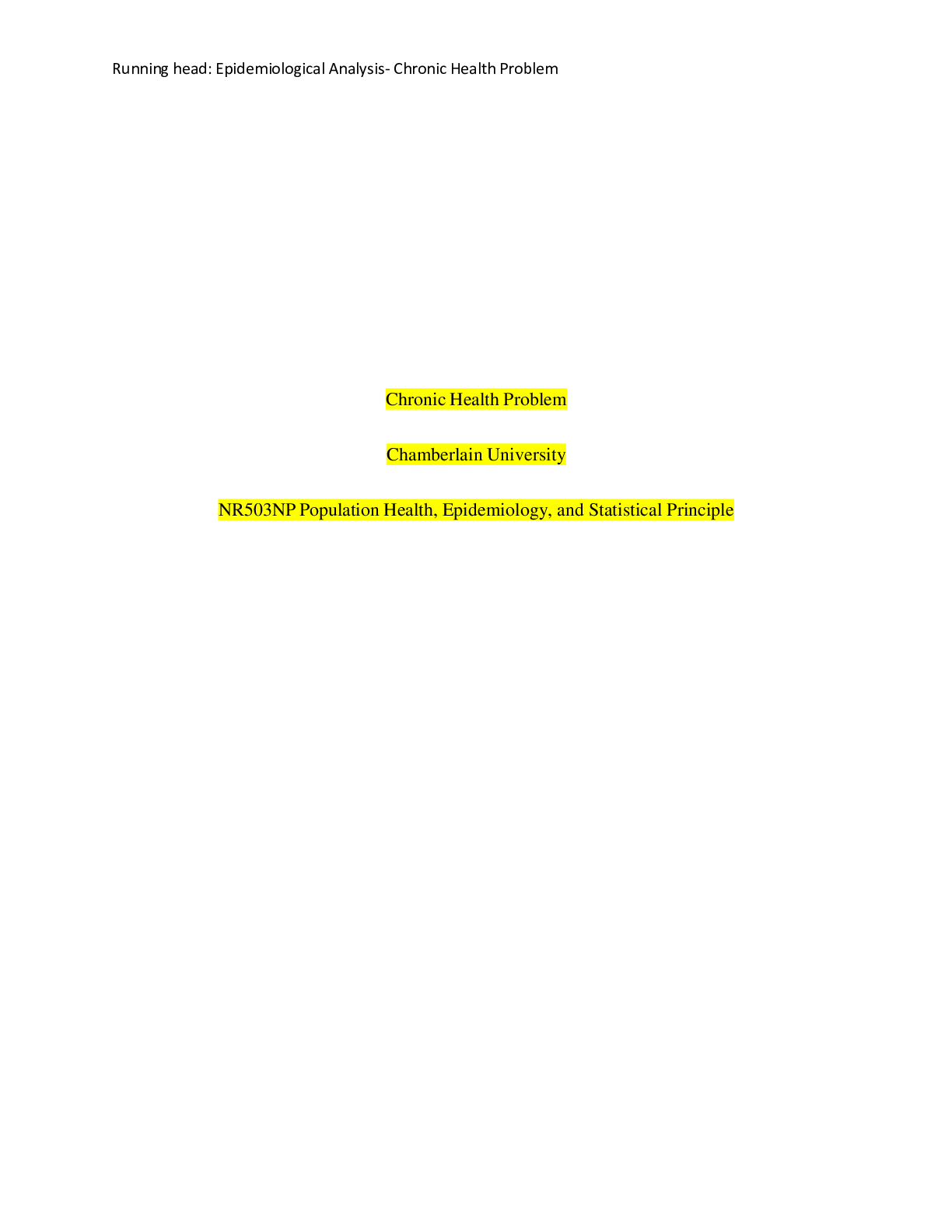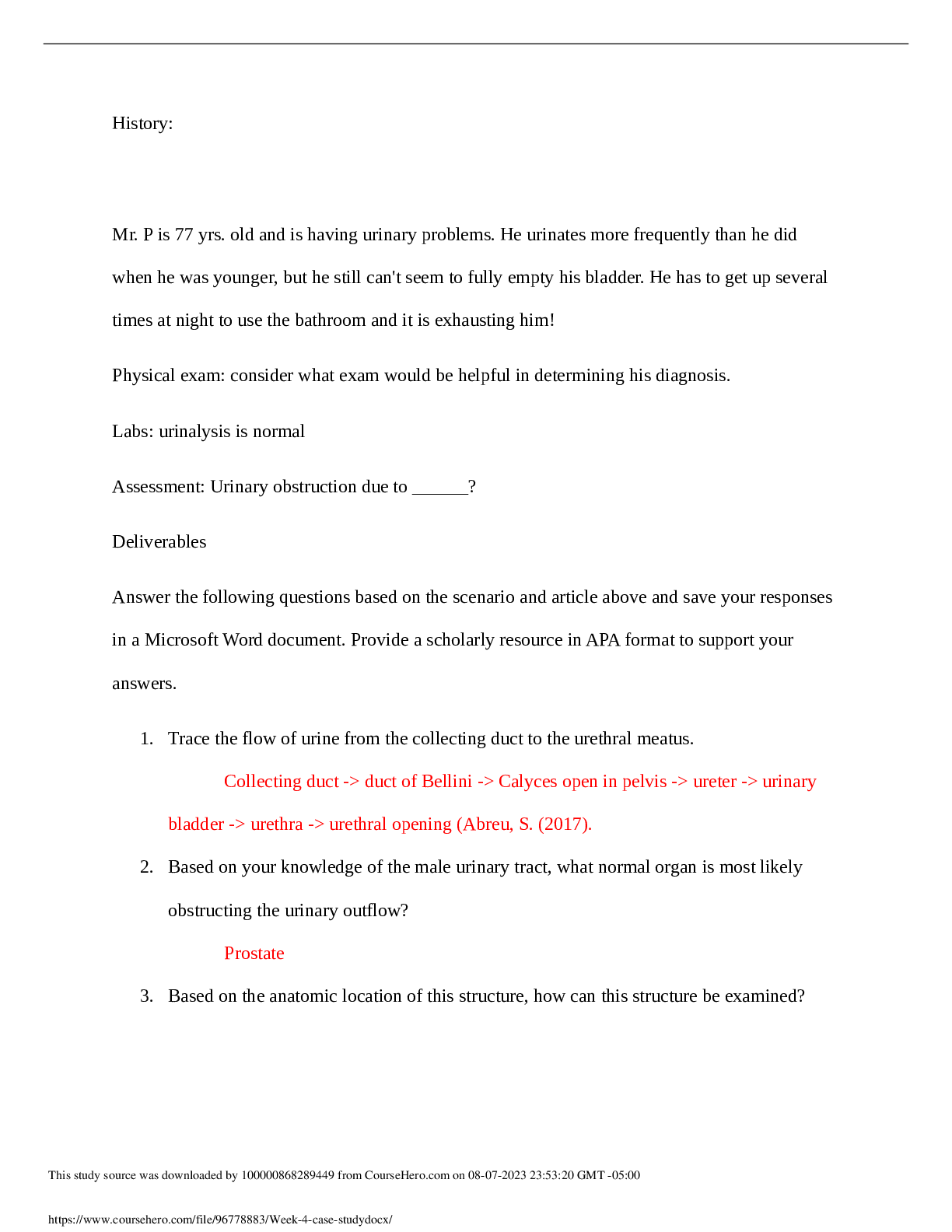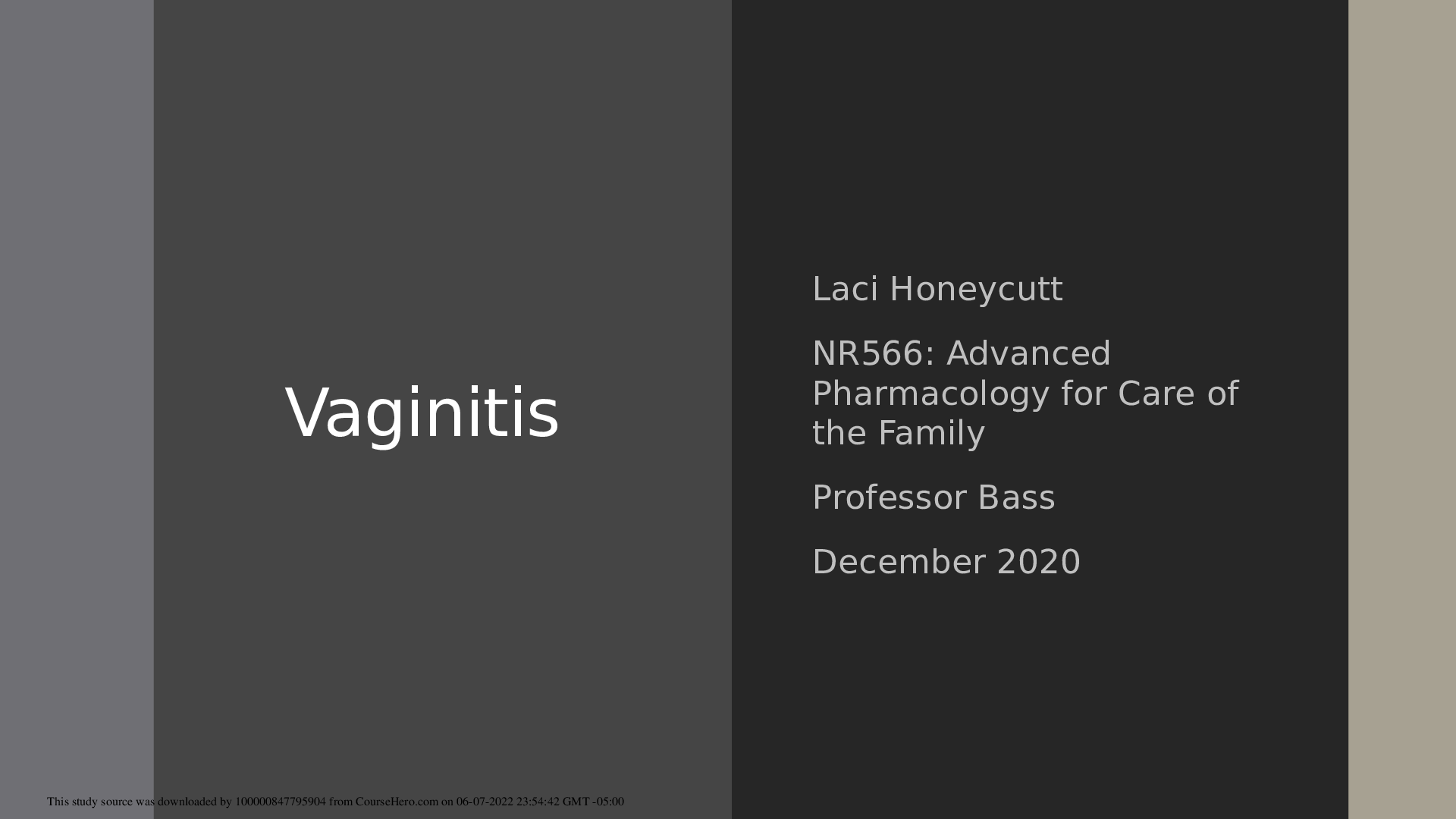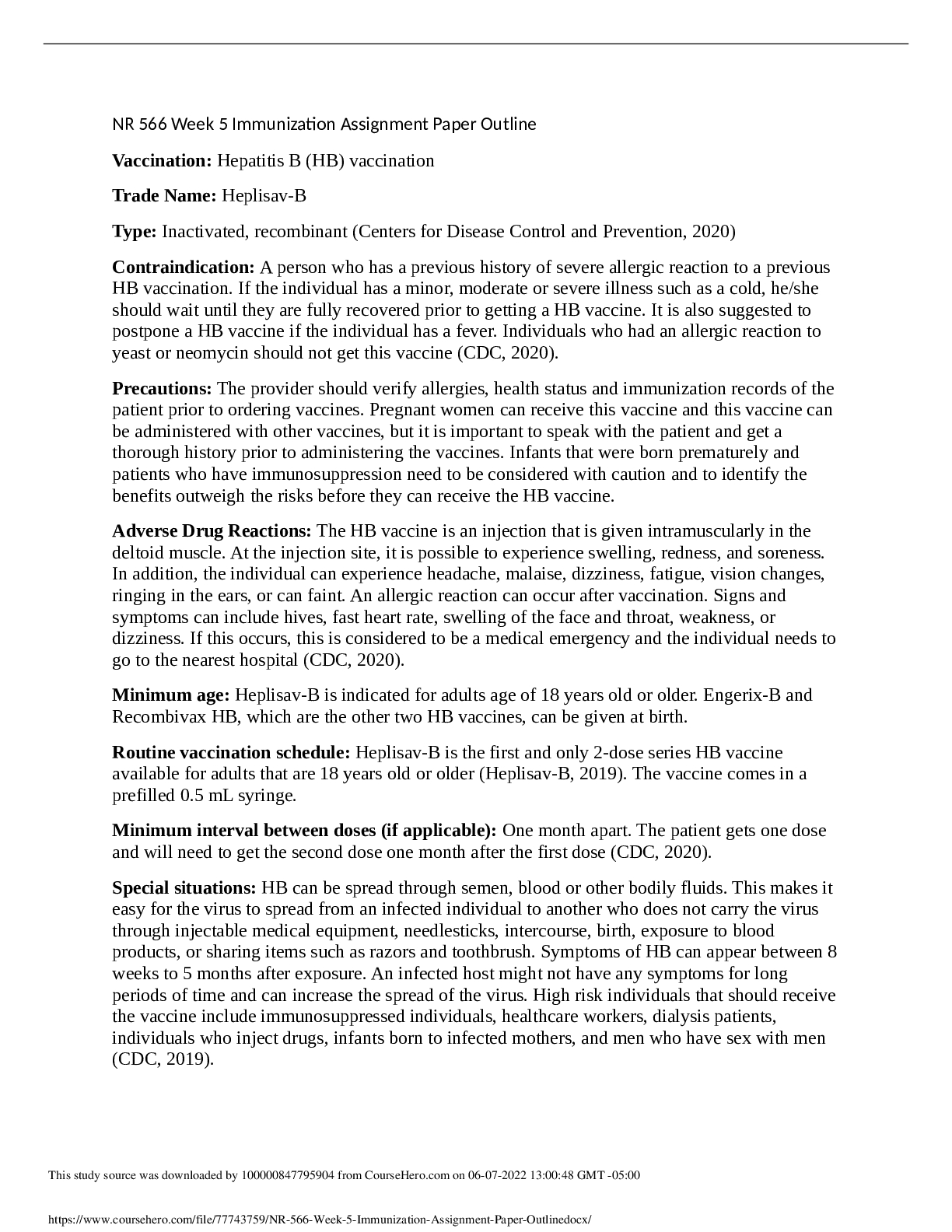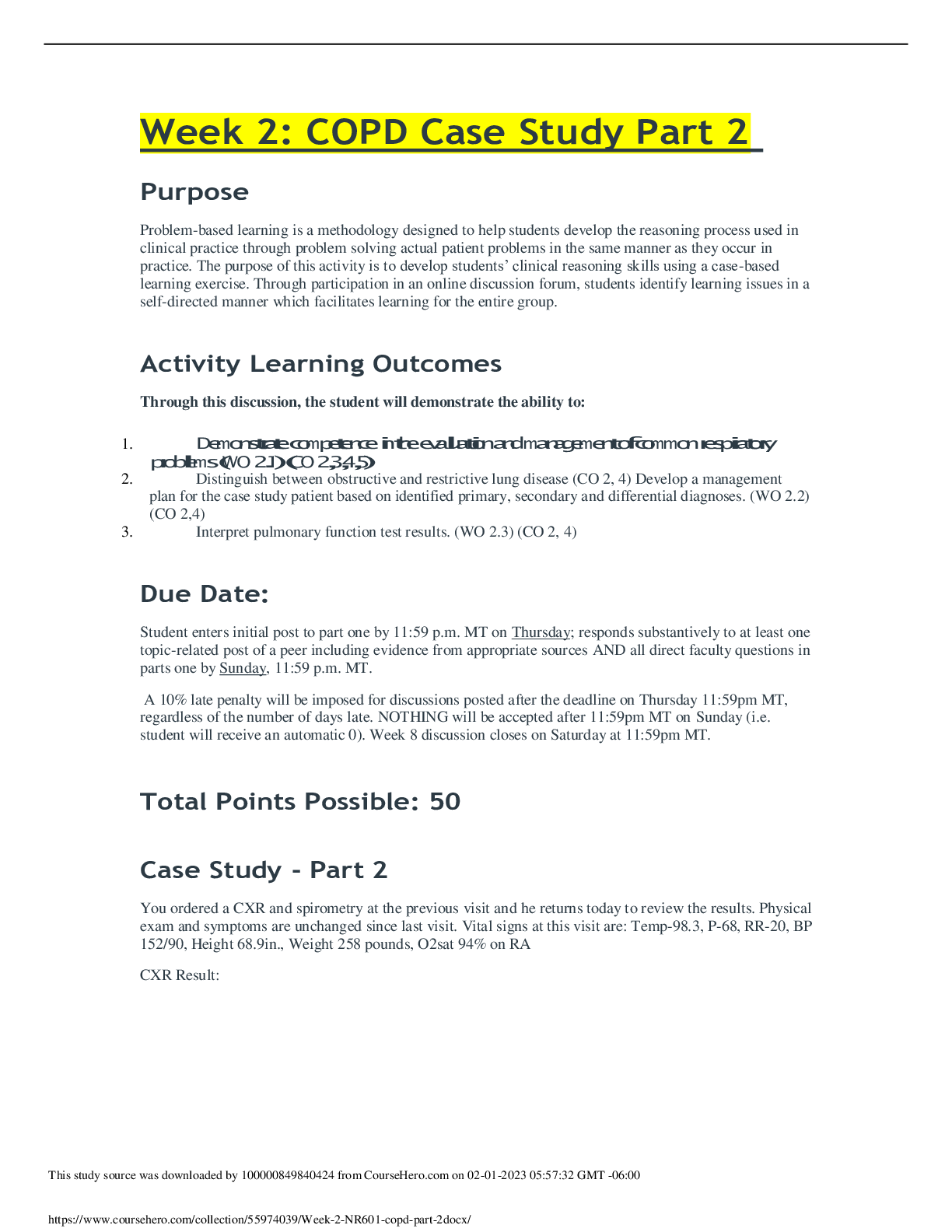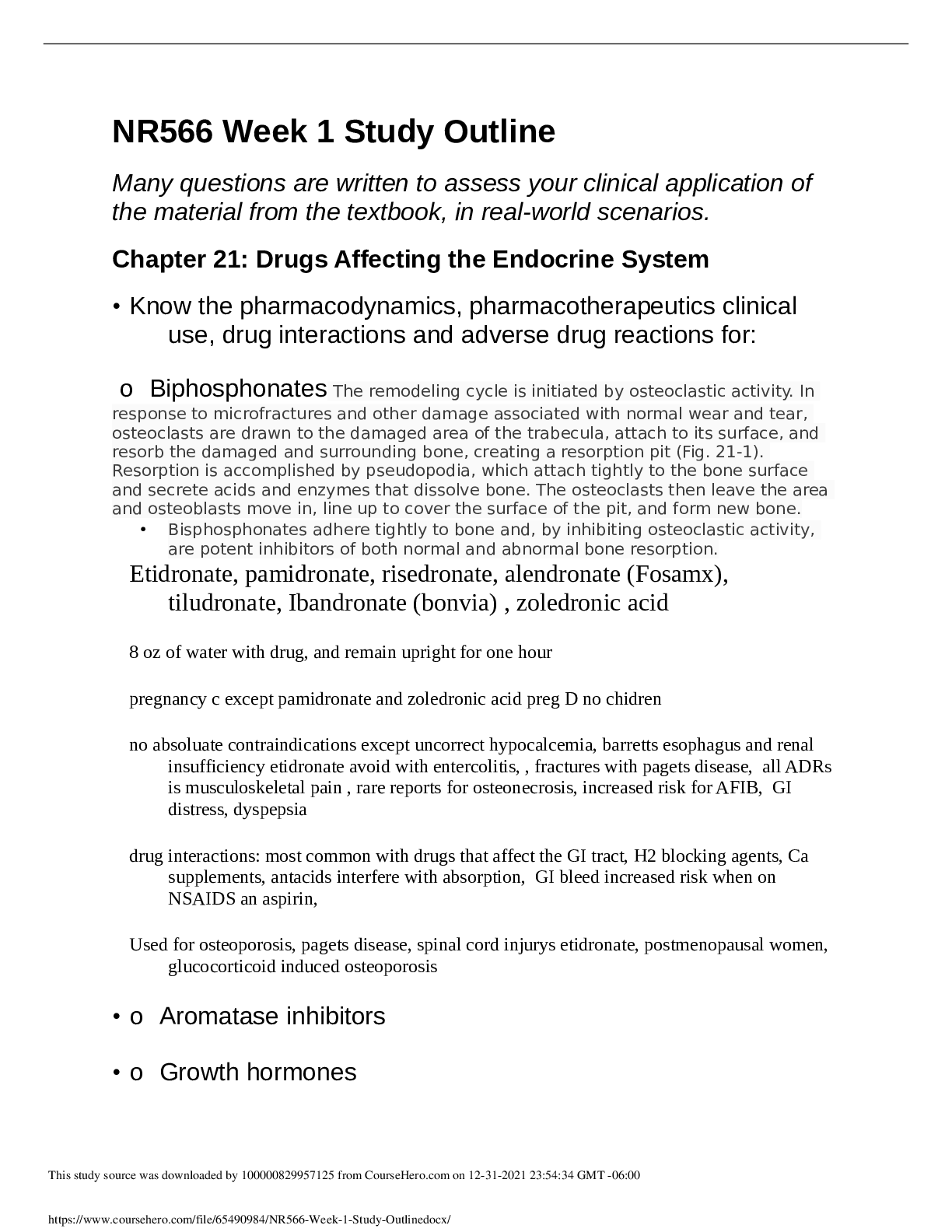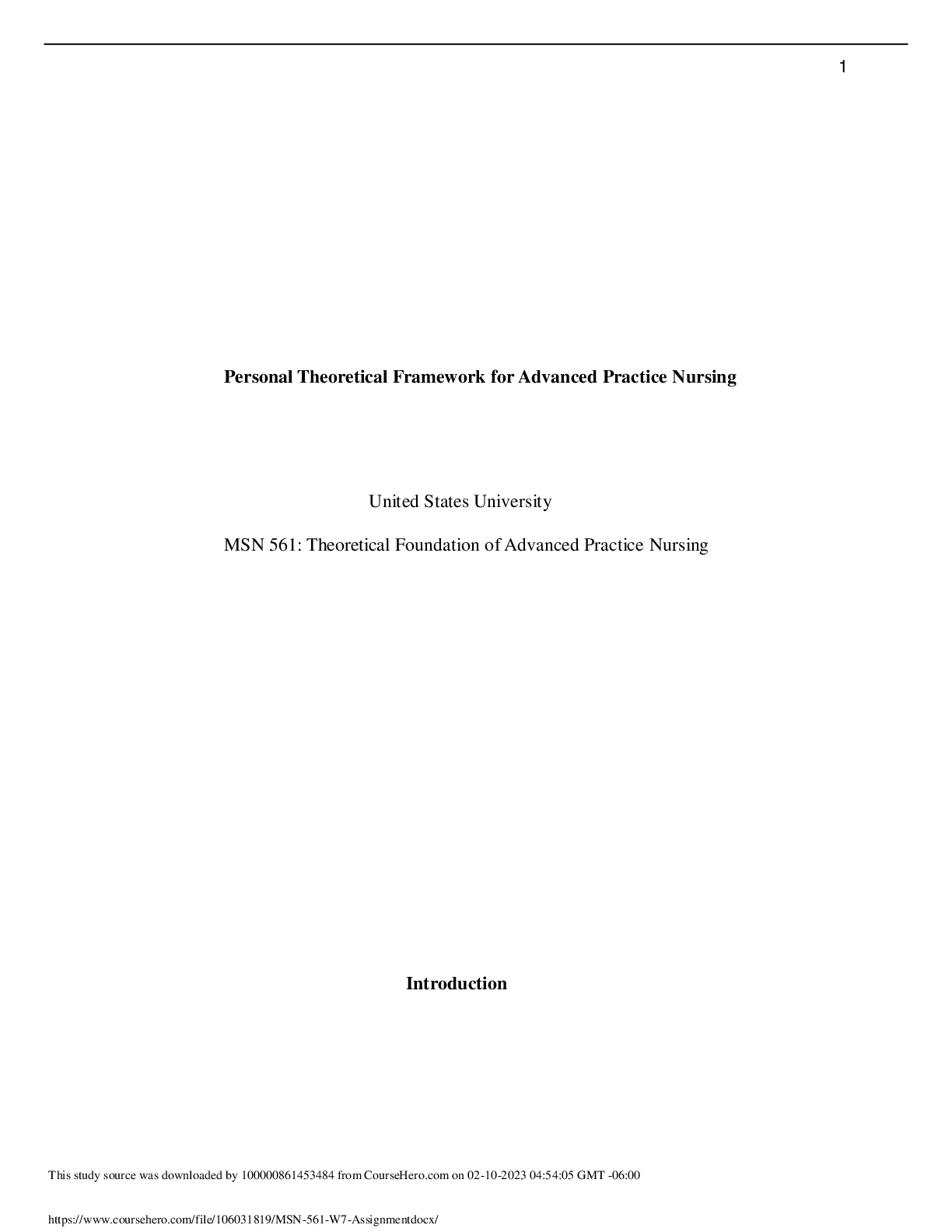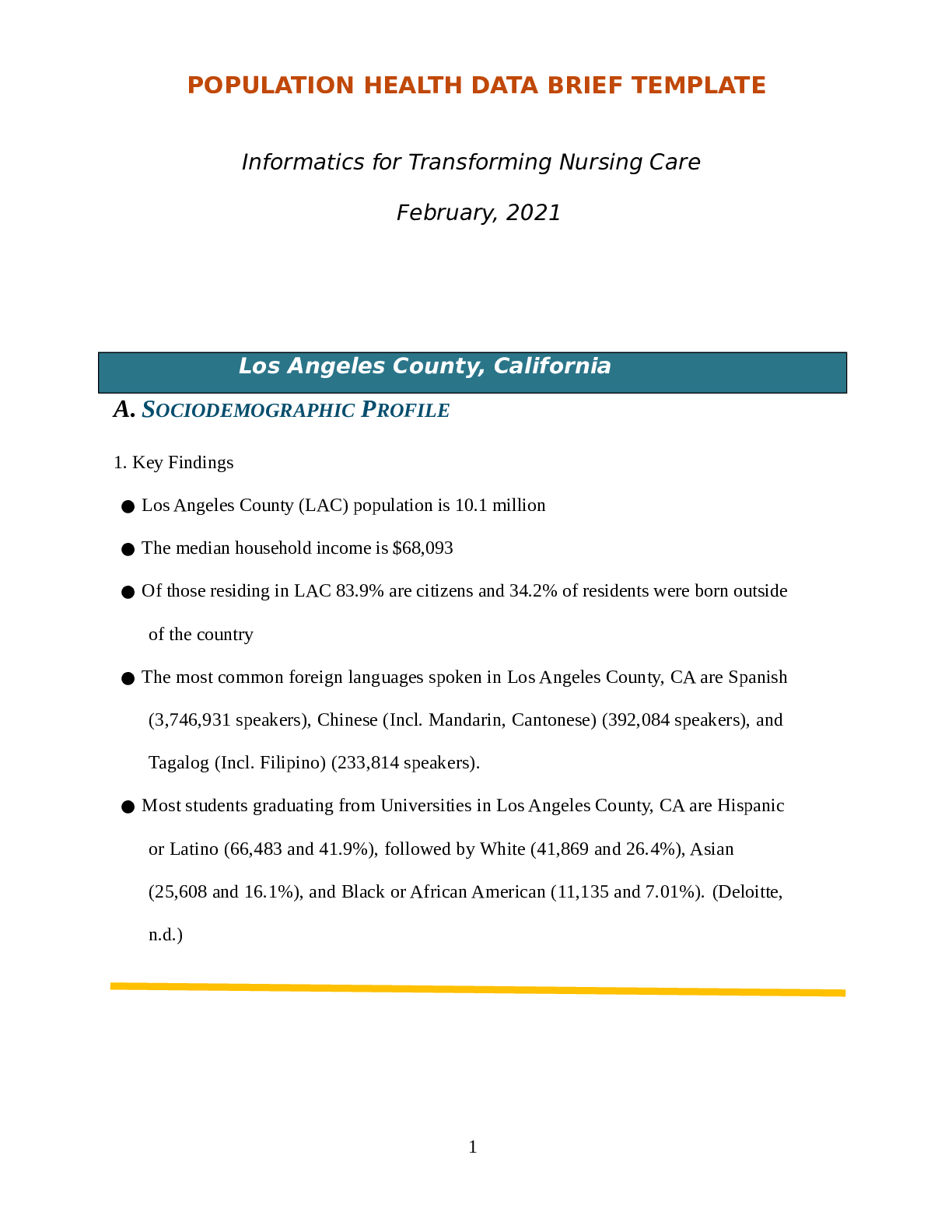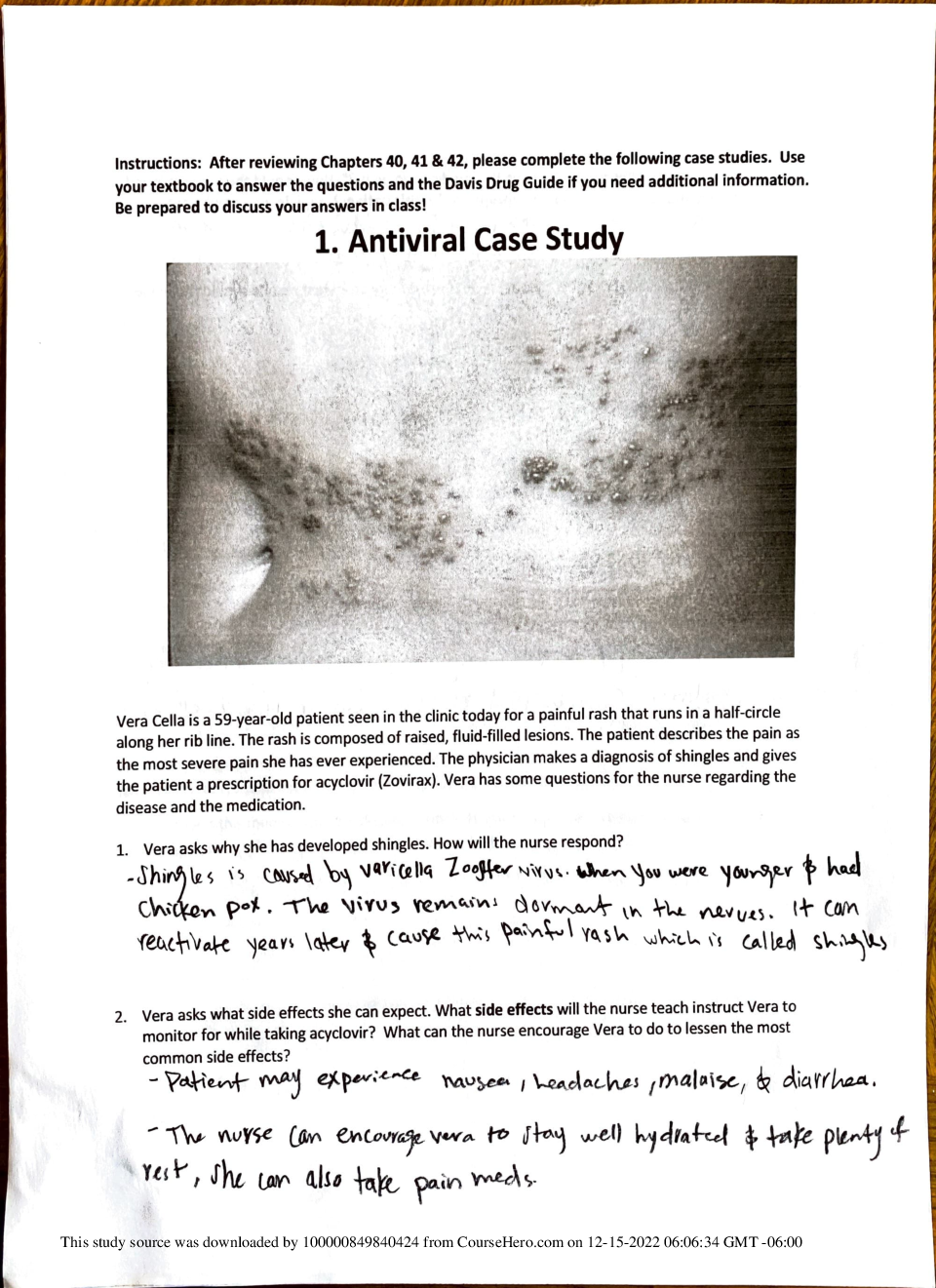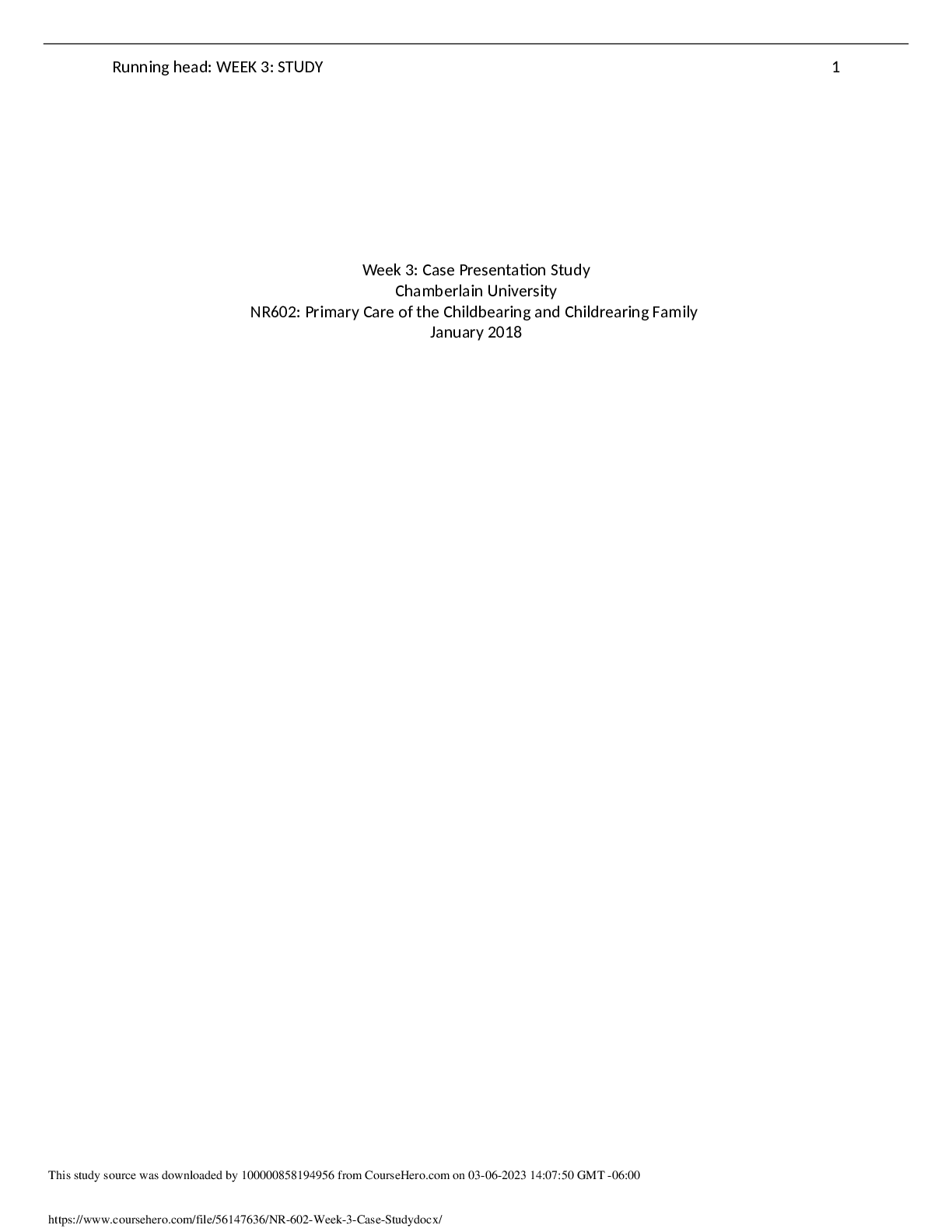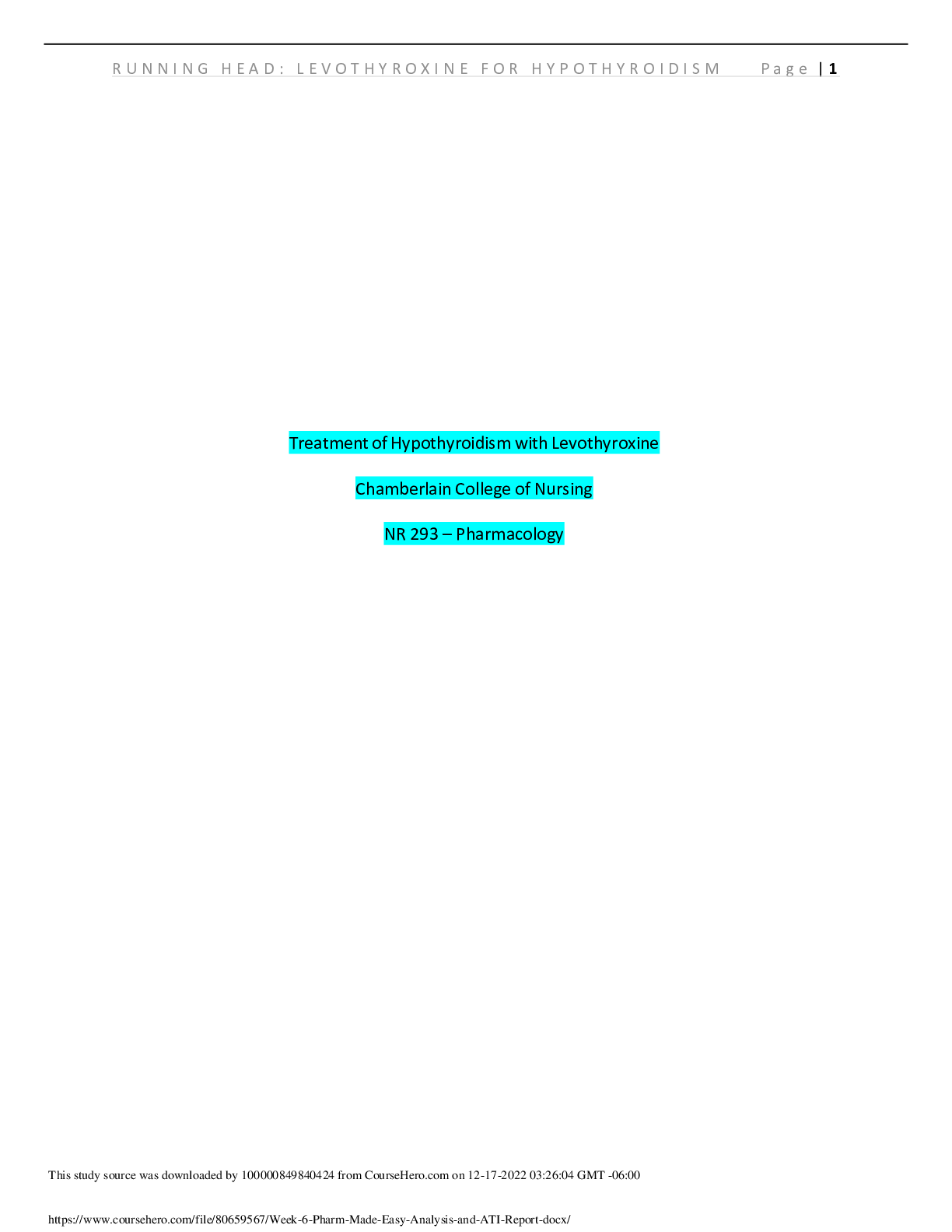*NURSING > CASE STUDY > NR-293 Week 7 Assignment: ATI Pharm Made Easy; Endocrine – Hypothyroidism and Levothyroxine (All)
NR-293 Week 7 Assignment: ATI Pharm Made Easy; Endocrine – Hypothyroidism and Levothyroxine
Document Content and Description Below
ATI: Pharmacology Made Easy: Endocrine System Chamberlain College of Nursing NR293: Pharmacology Analysis of Relationship The antithyroid drug chosen for the medication a... ctive learning assignment was propylthiouracil, which is used to treat hypothyroidism (Graves’ disease), thryrotoxic crisis, and suppression of thyroid hormone production. It works by blocking the synthesis of thyroid hormone by Iodine from being integrated into tyrosine, thus blocking the conversion of T4 into T3 (Potter et. al, 2017). Nurses have the responsibility to teach clients to watch for and report signs of hypothyroidism and hyperthyroidism to their health care provider. It is important to advise clients to report fever or sore throat, any kind of rash, and muscle/joint pain or headache. It is also of high importance to notify health care provider of any OTC medications, supplements, and herbal remedies taken by the client in order to prevent any drug-drug interactions. In order to evaluate the effectiveness of propylthiouracil clients must report a decrease in severity of symptoms of hyperthyroidism, and a return of thyroid function studies to normal. (Quiring et. al, 2019). Propylthiouracil is used to treat hyperthyroidism, which is the system disorder chosen for the system disorder assignment. Hyperthyroidism is a condition where there is an inadequate amount of circulating T3/T4, thus affecting all body systems. Risk factors include female sex, age, lithium, and inadequate iodine intake. Expected findings include fatigue, irritability, gain weight, cold intolerance, constipation, paleness, thick hair/nails, depression, dysrhythmias, decreased blood pressure, heart rate, and respirations, dry flaky skin, and pleural effusion (Mayo, Clinic, 2021). Diagnosis procedure include skull x-ray, CT scan, MRI, radioisotopes scan and uptake, and ECG. It is important to educate clients on the importance of a healthy diet and about life- long medication which should not be stopped abruptly. References Potter, P. A., Perry, A. G., Stockert, P., & Hall, A. (2017). Fundamentals of nursing (9th ed.). Mosby Quiring, C., Vallerand, A. H., & Sanoski, C. A. (2019). Davis's Drug Guide for Nurses (16th ed., Vol. 1). Philadelphia, PA: EA Davis Company. Mayo Clinic. (2021). Hyperthyroidism (overactive thyroid). Retrieved on February 10, 2021 from https://www.mayoclinic.org/diseases-conditions/hyperthyroidism/symptoms- causes/syc-20373659 [Show More]
Last updated: 1 year ago
Preview 1 out of 5 pages
Instant download
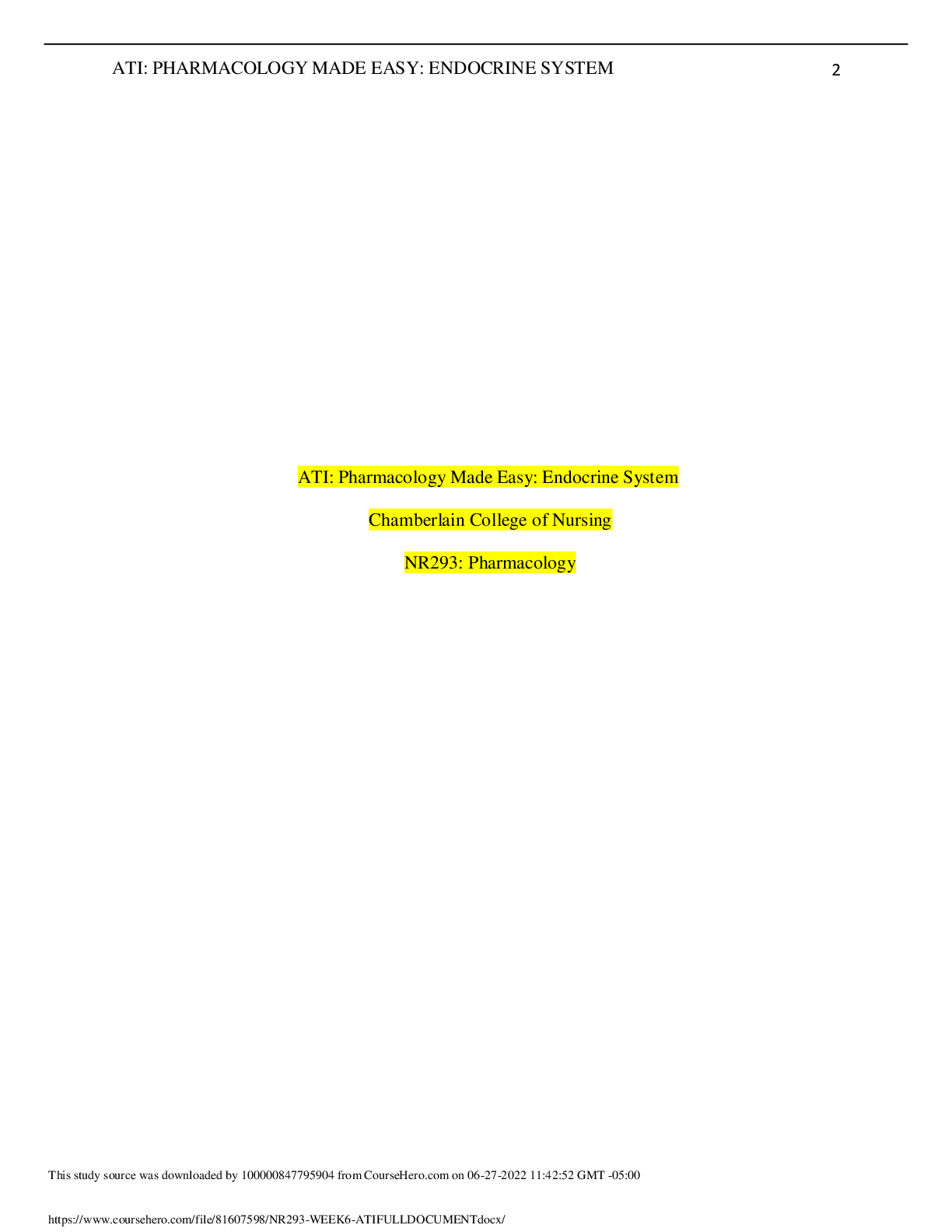
Buy this document to get the full access instantly
Instant Download Access after purchase
Add to cartInstant download
Reviews( 0 )
Document information
Connected school, study & course
About the document
Uploaded On
Jun 27, 2022
Number of pages
5
Written in
Additional information
This document has been written for:
Uploaded
Jun 27, 2022
Downloads
0
Views
42
